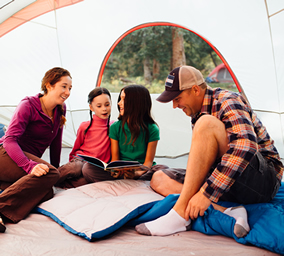Free Shipping offer is valid in the US lower 48 states only, and is not available for PO Boxes or Military APO/FPO addresses.
Unless otherwise specified, product prices already reflect discounts. All offers are limited to stock on hand; no backorders or rainchecks are available. Discount codes are not valid on prior purchases, cannot be used after their expiration dates, and do not apply to taxes, shipping and processing charges. Limit one discount code per order. Consumer must pay applicable sales tax. Offer may not be combined with any other sale, promotion, discount, code, coupon and/or offer. Promotions have no cash value. Offer cannot be sold or otherwise bartered. Void where prohibited, taxed or otherwise restricted. Returns of any portion of the purchase will require equal forfeiture of offer or amount equal to offer. Buy One Get One offers apply a portion of discount amount to each of the items. We have the right to end or modify any promotion at any time. Other restrictions may apply. Offers only apply to the United States unless otherwise noted.
Camping With Kids
 Every year, over 40 million people escape from their hometowns or cities and head into the wild to reconnect with nature and their loved ones. Camping gives us a chance to unplug, to see the stars, and feel just a little more human. At Wenzel, we believe camping is more than just an affordable way to spend a vacation, it is a timeless family tradition that we are committed to preserving. If you are new to camping, or are new to camping with kids, we would like to share a few simple tips to help make your next adventure an unparalleled success.
Every year, over 40 million people escape from their hometowns or cities and head into the wild to reconnect with nature and their loved ones. Camping gives us a chance to unplug, to see the stars, and feel just a little more human. At Wenzel, we believe camping is more than just an affordable way to spend a vacation, it is a timeless family tradition that we are committed to preserving. If you are new to camping, or are new to camping with kids, we would like to share a few simple tips to help make your next adventure an unparalleled success.
Tip # 1: Make a checklist
It’s easy for us to forget all the amenities we take for granted being in the city. In the mountains your resources are limited so be sure to make a checklist of all the essentials you may need such as; a daily meal plan, water (approx. 1gallon per person, per day), sunscreen, bug spray, and extra layers. If there are extra emergency items you would like to pack, but don’t think you’ll use, pack them together and leave them in the car unless needed.
Tip # 2: Safety
Unless you’re a veteran camper you may be nervous about your child’s safety in the woods. And while there are always some concerns about wild animals, cuts and scraps, and weather, the more you know the better off you will be. You can find some great tips on fire safety, first aid, animal encounters andstorm safety online. In addition, the best way to insure your child’s safety in the wild is to keep a close eye on them. Attach a whistle and a clip light to them and make sure they are always with an adult or using the buddy system.
Tip # 3: Prepare activities for all weather scenarios.
Our best-laid plans are too often thwarted by Mother Nature, so it is important to be prepared for a good time come rain or shine. Create some fun activities to do with your kids whether around the campsite, out on a hike or cozied up inside the tent. Here are a few activities to get you started:
- Scavenger Hunt - Create a scavenger hunt of items found in your local forest. This is a great way to teach your kids about local plants and animals and make a game out of it as well.
- Tracking - Young trackers will love searching out animal tracks along the trail. Make a game of it and see who can spot the most tracks, and/or identify them correctly. For help, print out some images of local animal tracks beforehand to bring with you on the trail.
- Science journal - Children of all ages will love creating their very own science journal. As they wonder through the campsites or down the trail encourage them to observe and record any interesting plants, rocks, sound smells etc.… Kids can include leaf rubbings, drawings, descriptions or hypothesis depending on their age range.
- Bring Games - If you find yourself stuck in the tent for an afternoon rainstorm, make sure you come prepared with a variety of age appropriate card games or books you can read individually or together as a family. And never discount the power of charades when played in tight spaces!
- Stories - Campfire stories get everyone involved with a campfire story circle. Let your youngest camper start the story and each person will add to it as the story travels around the fire. It’s a great way to get families laughing as you let your children’s creativity guide the activity.
Tip # 4: Hiking with kids
When hiking with children, be aware of their physical and emotional limitations. According to Backpacker Magazine, children aged 3-4 should hike no more than 1 mile, ages 5-6 (2-4 miles) ages7-11(5-7 miles) and ages 12+ (can walk more than 7, only on easy trails.) Note, that the average adult hikes 2 miles an hour and kids can take significantly longer. With every age group it is important to be patient and take frequent breaks; bring plenty of water, snacks, rainwear and be prepared to carry your smaller children for a portion of the time.
Tip # 5: Meal preparation
Depending on your taste buds and level of ambition your meal choices will vary. Regardless of your diet, try to make life easy on yourself and do as much early meal preparation as possible. Wash and pre-cut any veggies or meats and choose precooked foods where possible and bring easy back up meals just in case.
Let your kids help with meal preparation. Most kids will feel proud to participate in making campfire biscuits, poor man’s stew or even roasting their own hot dogs. Bring a few fun treats such as s’mores, coco or cider. Sometimes it can be those little things that make the biggest impact on your child’s memory.
Tip # 6: Teaching moments
Many parents find themselves a little afraid to camp with their kids. Afraid the children will be uncomfortable, throw fits, complain, or be bored. While that may happen, we shouldn’t let it stop us from sharing a genuine experience with them. One of the greatest joy of camping with your kids is that if offers you a chance to experience and learn about the world together. Camping forces you to slow down and to focus on the basics. Remember to take the time to listen and absorb what your kids are interested in, what they are observing, and how they are translating the world around them. Our kids are resilient, and the more we take the time to be there with them, the more they will show themselves to us.

